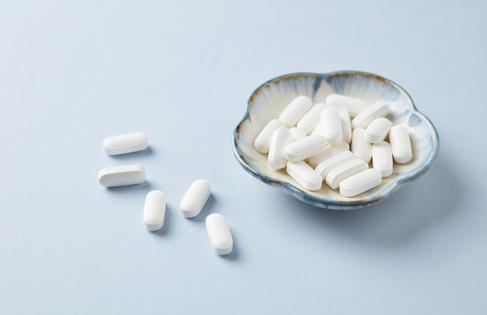Environmental Nutrition: Spotlight on Supplements: L-Lysine
Published in Health & Fitness
An increasing number of Americans are open to eating a more plant-based diets including protein from non-animal sources. Since nutritional properties of animal and plant-based proteins differ, it is important to consider the quality of dietary protein, especially certain amino acids such as lysine. EN evaluates this amino acid and its role in human health.
Background
Lysine is an essential amino acid, meaning that although it is necessary for human health, the body cannot produce it. Therefore, we have to consume lysine from food or supplements. Lysine’s main role is to participate in collagen synthesis and it is important for tissue repair and growth. Lysine is also necessary for the production of carnitine, critical for energy production. It is estimated that most people get enough lysine in their diet from a mixture of both plant and animal sources. Intakes of lysine from food by adults with adequate diets range of four to five grams per day. Good sources of lysine in the diet include meat (red meat, pork, poultry), fish (cod, sardines), eggs or soybeans.
Protein quality and supplementation
It’s not just the quantity but the quality of protein (determined by amino acid composition) that is important. People who do not consume enough may benefit from supplemental sources. There
are some populations that may not have enough lysine in their diet (vegetarians/vegans, burn patients, athletes). Lysine can be a limiting amino acid in cereals (wheat, barley, and rice). A limiting amino acid refers to the amino acid that would limit protein synthesis. Supplemental lysine is available in tablets, capsules, or creams and usually found in the form of l-lysine. As a supplement, lysine has been researched alone and in combination with other amino acids for potential benefits for muscle strength, anxiety, cold sores and bone health. Lysine may interact with and increase absorption of calcium in the body and suggests a potential usefulness of lysine supplements as an intervention for osteoporosis.
Safety
Dietary lysine is generally considered safe. A 2020 systematic review estimated the no-observed-adverse effect level in healthy human subjects at 6 grams per day of l-lysine supplementation to a normal diet for long-term use. At higher levels, gastrointestinal symptoms could occur, and gallstones and renal dysfunction have been reported. It’s important to talk with your doctor before starting any new dietary supplement.
(Reprinted with permission from Environmental Nutrition, a monthly publication of Belvoir Media Group, LLC. 800-829-5384. www.EnvironmentalNutrition.com.)
©2021 Belvoir Media Group. Distributed by Tribune Content Agency, LLC.







Comments